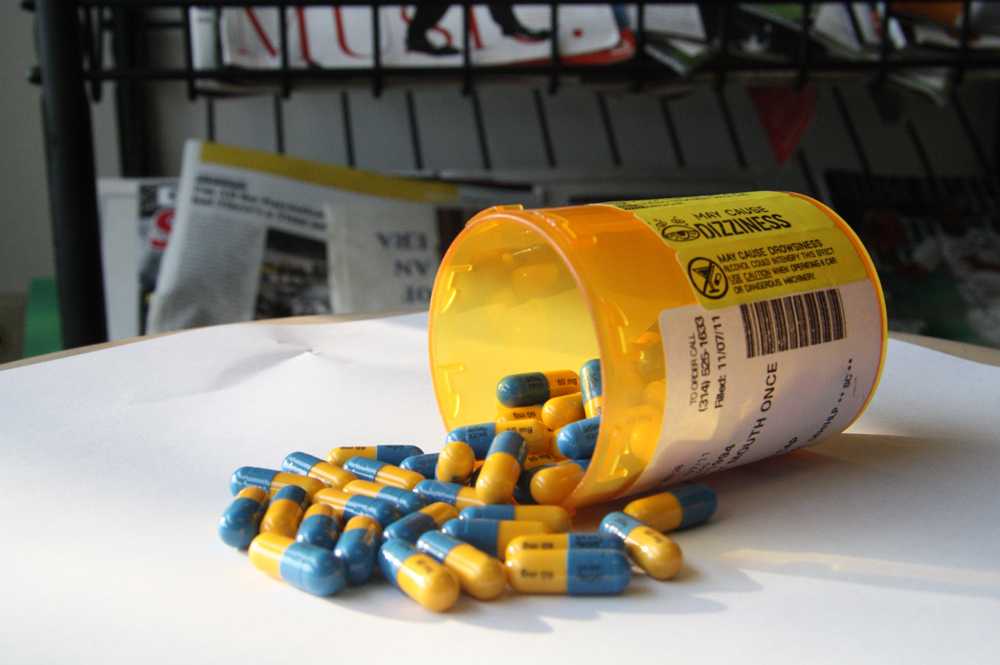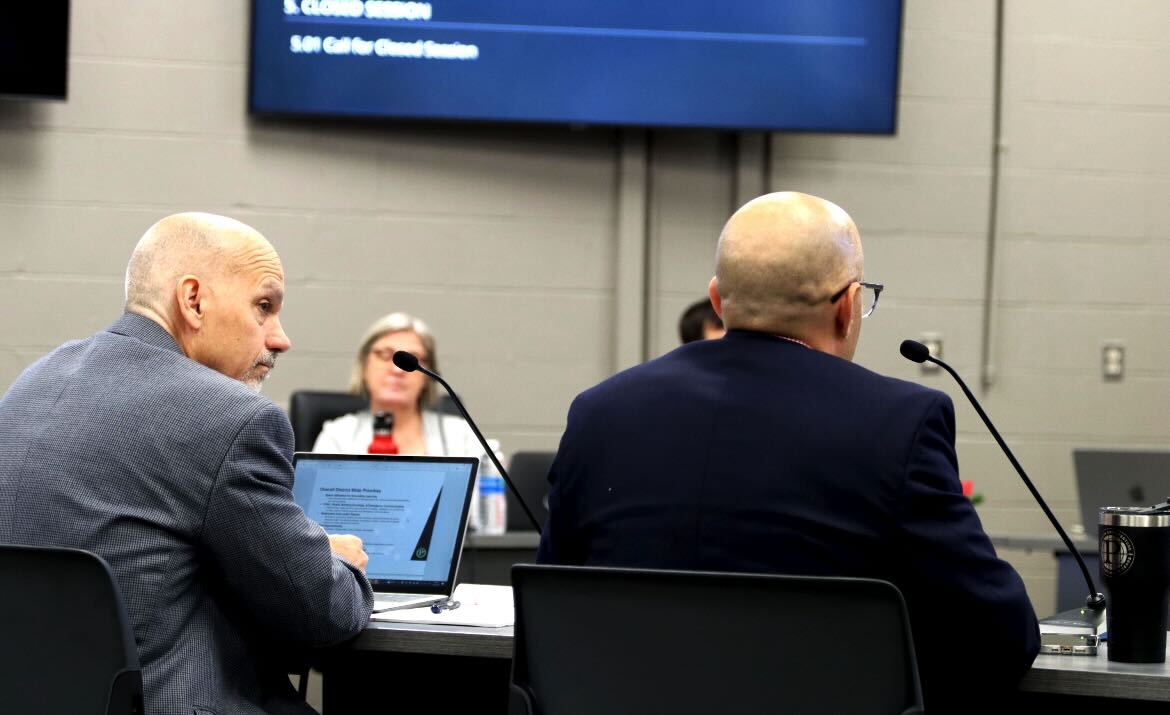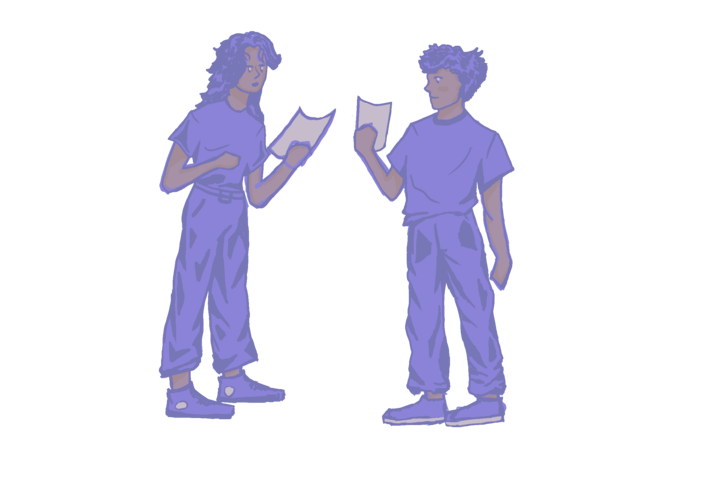Before school every morning, Geoffrey Berger shuffles to his kitchen table, finds a small orange bottle, unscrews its lid, and pours a pill into his hand. Swallowing just one will help him focus on his teachers and peers, control his impulses and widen his attention span.
During his freshman year, Berger, sophomore, was prescribed Adderall to help him overcome his attention deficit disorder (ADD). ADD is a set of symptoms that describe difficulties some people have with concentrating and focusing on tasks they do not find enjoyable or stimulating.
“I had moments where nothing really made sense,” Berger said. “There were times when I was totally oblivious to things, but with the medicine, I don’t have those.”
Before Berger was diagnosed, he experienced difficulty focusing on both academics and social situations.
“I just wasn’t focused on my friends,” Berger said. “When I was with them, I was spacey and I wasn’t involved in their conversations. I wasn’t interested in what they were doing.”
According to the U.S. Health Resources and Services Administration, 2 million children currently struggle with attention problems, which have grown more common since 2003. The National Institute of Mental Health reports a 22 percent increase in incidents of ADD alone from 2003-2007.
Carrie Medelman, psychology teacher, believes the increasing number of children diagnosed with attention disorders can be explained by their changing lifestyles.
“Our whole dynamic has shifted, so our whole attention span has shifted,” Medelman said. “We don’t teach kids to sit, focus, pay attention and have impulse control. Instead, so many people toggle back and forth between screens, so naturally, we toggle back and forth with our attention.”
According to the National Institute of Mental Health, stimulant medication prescribed to treat attention problems has increased by 3.4 percent per year between 1996 and 2008. At KHS, many students with attention disorders use prescription medication to help them cope with their condition. Joey Seibel, sophomore, was diagnosed with attention deficit hyperactivity disorder (ADHD) in kindergarten.
“Taking medicine made things so much easier,” Seibel said. “It was harder to learn and harder for teachers to deal with me, but the combination of growing up, becoming more mature and taking medicine helped me learn to control it and get over it.”
Although the medicine is helpful, Berger believes he cannot completely depend on it to manage his ADD.
“You have to work with the medicine,” Berger said. “It won’t fix all of your problems for you.”
Before Elise Tadros, junior, realized she had an attention disorder, she would sit down at her kitchen table and study for hours; however, she would forget all of the information she thought she memorized during tests. Tadros was diagnosed with ADD in sixth grade, and she takes Strattera to help her focus.
“I still have to study and have the mentality that I just can’t grasp things as well as others,” Tadros said. “I always review and I always go see my teachers every day after school.”
According to Medelman, it is important for students with ADD and ADHD to realize medicine will not erase all of the symptoms and difficulties that accompany a
learning disorder.
“ADD and ADHD don’t just go away,” Medelman said. “You need to learn some coping mechanisms. Popping a pill won’t magically reorganize your binder or do your homework for you. It’s parents, teachers, and that person’s job to teach relationship and homework skills, not the pharmacy’s.”
As the amount of diagnoses multiply, skepticism concerning whether or not ADD and ADHD are real disorders continues to grow. Doctor Laquita Graham, St. Louis pediatrician, believes ADD and ADHD are over-diagnosed conditions.
“A lot of times, teenagers will say things like, ‘I’m not focused,’ or ‘I can’t concentrate,’ and then they go to their physician and say they have ADD or ADHD,” Graham said. “Sometimes, physicians won’t put them through the full analysis and they will start them up on medication, when in reality, most teenagers are just at a stage in their life where they are distracted by all of the different things they have to deal with and what is going on around them.”
According to Graham, in order to properly diagnose someone with ADD or ADHD, a physician must interview the person claiming to have the condition along with the individual’s teachers and parents.
“It’s important to base a diagnosis off of multiple sourrces, not just complaints,” Graham said. “ADD and ADHD are biochemical disorders in the brain, and that is why medication can help people who truly have the condition.”
Tadros agrees ADD and ADHD need to be diagnosed more carefully.
“Just because you get distracted by something shiny or you can’t focus on a conversation doesn’t mean you have a disorder,” Tadros said.
Although Medelman believes attention disorders are over-diagnosed, she knows it is a serious issue that impacts the lives of many people.
“It’s a real disorder,” Medelman said. “Unfortunately, part of the problem with being over-diagnosed is that it takes attention away from people who struggle with it. People see it being over-diagnosed, and they think it’s not a real thing. It is, and it affects a whole lot of real people.”













![Of course [people have been mean to me],” Jack Baranski, sophomore, said. “I don’t remember their names though. History forgets those who were judgmental of others’ creativity.”](https://www.thekirkwoodcall.com/wp-content/uploads/2019/11/printout-30-e1572837544286-900x454.jpg)
